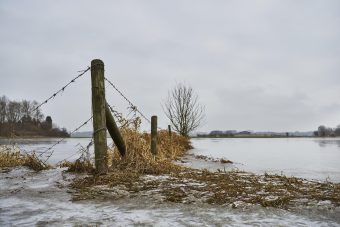
Women make up 49.7 per cent of the global population, yet they are often ignored, and their rights violated. The result is a world that excludes and marginalizes half the population of the planet – a problem that will prevent all of us from experiencing a more prosperous, peaceful, and sustainable future. At the root of this problem is gender inequality (UNFPA, 2023).
With climate change, the challenges will intensify. Although climate change affects all segments of society, its impact can vary, often exacerbating existing inequalities. Gender disparities can hinder women’s capacity to adapt to weather-related disturbances. Moreover, as weather events become more frequent and severe, gender inequalities have the potential to persist and escalate (Eastin, 2018; World Bank, 2023).
It has been recognized for decades that women remain under-represented in professional fields in science, technology, engineering, and mathematics (STEM), particularly on a global scale (UNESCO Institute for Statistics, retrieved from World Bank Gender Data Portal). Meteorology, hydrology, and disaster risk reduction are no exceptions.
More:
The Flash Flood Guidance System (FFGS) project, developed in partnership between WMO and the National Oceanic and Atmospheric Administration (NOAA)/National Weather Service (U.S. NWS), United States Agency for International Development/Bureau for Humanitarian Assistance (USAID/BHA) and the Hydrologic Research Center (HRC), provides operational forecasters and disaster management agencies with real-time informational guidance products on the threat of small-scale flash flooding. Beyond its classification of a tool, it functions as a hub for diverse contributions from across 72 countries around the globe and organizes specialized workshops tailored for females and advocates for parity within training sessions and meetings. This concerted effort seeks to cultivate equitable representation, echoing the United Nations top priority of protecting every individual on Earth, including the most vulnerable, with early warning systems by 2027.
A recent instance illustrating this principle was the FFGS Female Empowerment Workshop held in Geneva, Switzerland, from May 25 to 26, 2023. Facilitated by funding from USAID/BHA, the workshop convened 16 FFGS female experts from National Meteorological and Hydrological Services (NMHSs), representing all 6 WMO Regional Associations (RAs). With a clear directive of fostering practical leadership capabilities, the workshop homed in on enhancing skills in communication, negotiation, and consensus-building. Foremost among the outcomes was the formulation of the Female Empowerment Statement, articulating five recommended actions poised for presentation at the Nineteenth World Meteorological Congress (Cg-19) and the Hydrological Assembly.
Source: WMO



